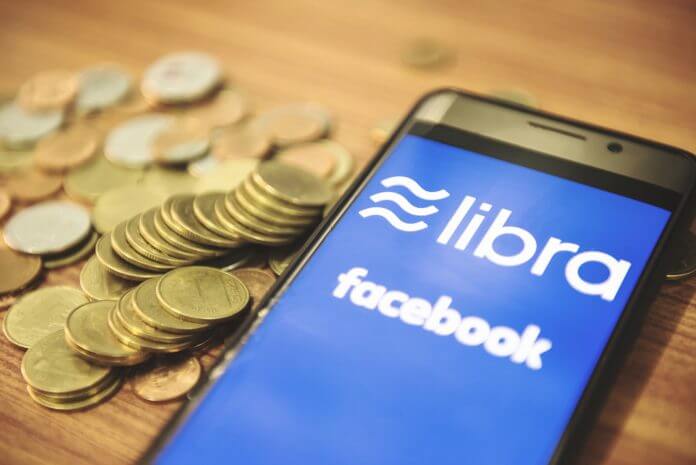Facebook is gearing up to release its own cryptocurrency called Libra, the world’s largest Internet social networking site is ready. Libra will be a so-called stable coin: a digital currency supported by traditional government-backed currencies and securities. The reason for this move is to avoid daily fluctuations in value so that Libra is useful for everyday applications. Other virtual currencies such as Bitcoin have failed in becoming commonplace in everyday payments because of these fluctuations.
Libra’s rollout date
Facebook plans to launch Libra in the first half of next year. It hopes that the new cryptocurrency will one day grow to the same size as the U.S. dollar. Patria’s short-term investment tip at 12:30 CET is up 2.3 percent in the premarket.
Libra will allow Facebook users to send and receive money between them through messaging services. Private messaging is one of the fastest-growing products in Facebook’s portfolio; and the number of users in some significant markets is no longer increasing as it had been in the past. Payments are a way to turn messaging into a complementary income stream to Facebook’s advertising activities. At present, advertising makes most of its revenue by providing ad space and targeted ads.
Supporters
Facebook and several partners have created an association to manage the new currency. The association includes, for example, credit card issuers such as MasterCard and Visa, the PayPal online payment platform; eBay, the largest auction site in the world; and Uber, a ride-hailing app that is an alternative to taxi services.
Facebook has also set up a subsidiary to offer a digital wallet called Calibra that will allow people to use the new digital currency. Calibra will be a part of Facebook and WhatsApp. Both are Facebook platforms, and they have over a billion users, Reuters said. Bloomberg notes that Mark Zuckerberg wants to integrate all Facebook messaging products so that users can communicate across applications.
The public will need tremendous confidence in Libra to get this currency close to the U.S. dollar in terms of acceptance and usability. To achieve this, Facebook and its partners will try to imitate an important characteristic of old currencies: gold was their guarantee.
“Instead of being backed by gold, it will be backed by a set of low volatility assets such as bank deposits or short-term government securities in currencies from stable and recognized central banks,” Facebook wrote.
What will substantiate Libra’s value?
The total amount of Libra coins will be variable; and Facebook will issue the new digital currency at any time when someone wants to exchange their standard legal currency for Libra. This means that the price shouldn’t fluctuate as much as that of other stable coins, says David Marcus, head of the blockchain team on Facebook, who drives the project forward.
Libra will work on a blockchain database. Blockchain uses millions of computers to validate transactions, which should reduce the risk of Libra’s centralization.
If Libra succeeds, Facebook could become a very significant player in the financial services market, but that is a big question. Facebook does not have much experience with payments, and the efforts to expand other blockchain-based digital currencies have not yet come close to reaching the success of traditional money. Other entities have been trying to do it for ten years (Bitcoin being the prime example), and some have already given up, and when Libra finally appears.
Another problem for Facebook could be obtaining the approval needed from regulators to create the currency. Facebook assures that it will have no special privileges in the association it has created for Libra. But the rules of this community, which include at least 27 other companies, remain vague, and most crucial decisions have not yet been made.
We should not forget the privacy concerns and criticisms that the company has faced lately. The company’s entry into the world of digital payments is likely to raise further objections. Facebook claims that the financial data obtained from Libra users will be kept separate from Facebook’s user data. “According to Marcus, there is a clear distinction between what Calibra and Facebook will have access to,” says Bloomberg.
All about Libra right here: https://en.wikipedia.org/wiki/Libra_(digital_currency)






